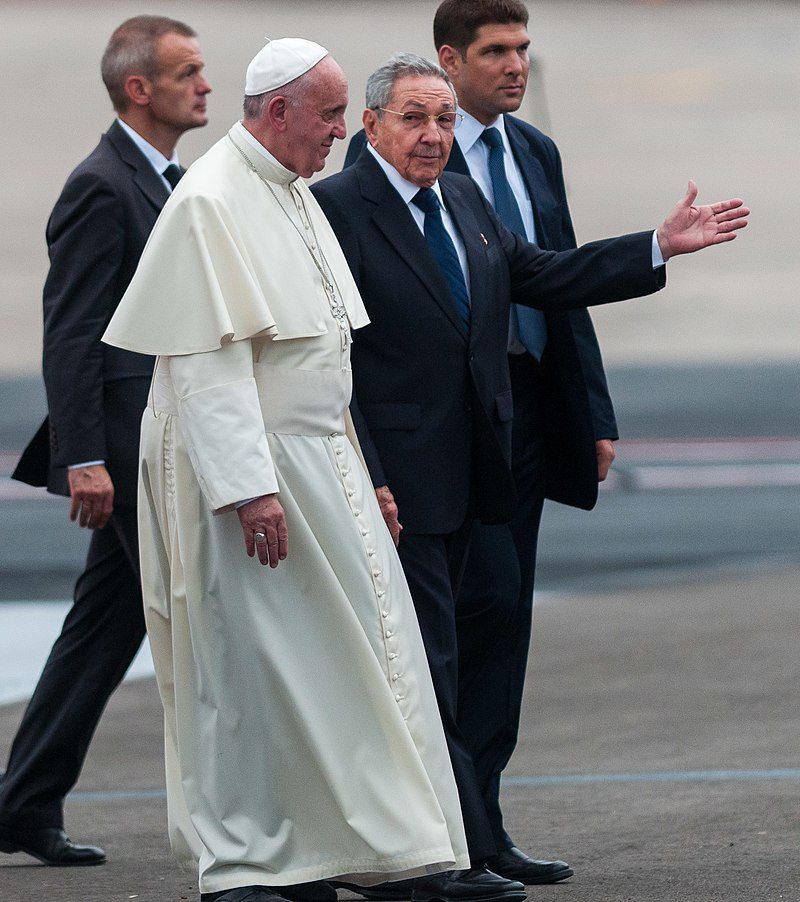
Pope Francis, the head of the Catholic Church and the Vatican State, recently passed away. In the modern world, the Pope, who no longer has the power he once had, has a largely spiritual role, but his influence has had a say in many areas of global politics. The Papacy, which is a political as well as religious office, has no significant say in world security matters, but its presence intersects with the arms industry in surprising ways through the lens of soft power, ethics, and international markets. Our article will revolve around the Pope and the arms industry. In our article, we will explore the influence of Pope Francis on global security and military industrial developments.
Pope Francis and the Arms Industry: A Strong Anti-Conflict Voice
Pope Francis has been a strong opponent of war in the media since the day he took office. His statements on the wars in Ukraine, Syria, Yemen and elsewhere have frequently made international headlines. In addition, the Pope’s radical statements, in which he referred to the arms industry as a “factory of death,” have drawn attention. He has also harshly criticized countries that spend their budgets on military rather than humanitarian aid.
While his criticisms may not mean anything to many countries, they were very important to countries with a Catholic majority. His sentences carry geopolitical weight because of their impact on the people. Thus, the Pope’s calls for a ceasefire and negotiations resonated especially in diplomatic circles of countries with a Catholic majority. Although he does not command armies or control defense budgets, his words have reached millions and have contributed to a global atmosphere of skepticism against large-scale militarization.
The Vatican’s Role in Global Security Conversations
Despite its small size, the Vatican holds permanent observer status at the United Nations. It participates in major international dialogues, including those about nuclear weapons, humanitarian law, and disarmament. In 2017, the Vatican hosted a conference that brought together Nobel Peace Prize winners, UN officials, and disarmament experts.
The Pope’s consistent rejection of nuclear weapons—even for deterrence—challenged the security doctrines of major powers like the United States and Russia. He went beyond traditional religious diplomacy, using moral authority to question the logic of mutually assured destruction. His involvement gave additional weight to disarmament treaties and arms control negotiations, even though the Vatican had no military assets.
Soft Power Meets Hard Power: An Unlikely Intersection
Soft power refers to the ability to influence others through culture, values, and ideas—rather than force. The Pope was a master of soft power. In a world increasingly dominated by hard power—drones, missiles, cyber warfare—his presence offered a moral counterbalance.
For nations debating the ethics of autonomous weapons or AI in military systems, the Pope’s message raised essential questions: What are the human costs of advanced warfare? Who is morally responsible when machines kill? These questions don’t change military strategies directly, but they influence public discourse and long-term policy.
Can the Arms Industry Ignore the Pope?
At first, yes. Defense contractors like Lockheed Martin, BAE Systems, or Baykar may not see a religious leader as a stakeholder. However, over time, public pressure shaped by moral arguments can affect policy. Religious communities often form the backbone of civil society. When they push back against defense budgets or protest arms exports, they force politicians to respond.
Moreover, global brands—even those in the defense sector—care about image. The Pope’s opposition to arms dealing has put ethical pressure on companies selling weapons to regimes with poor human rights records. That doesn’t stop the sales, but it shifts the narrative.
The Legacy of Pope Francis in Security Policy
Pope Francis will not be remembered for military victories, but for challenging the normalization of war. He consistently argued that true peace requires more than deterrence—it demands justice, dialogue, and empathy. His papacy helped reframe international security as a moral issue, not just a strategic one.
This legacy may influence future leaders, religious or political, who seek alternatives to endless arms races. As emerging technologies like hypersonic missiles and autonomous drones redefine warfare, the need for ethical oversight will grow. The Pope’s voice might echo louder in years to come—even after his death.
The connection between the Pope and the defense industry may not be direct, but it is real. Through soft power, ethical leadership, and global diplomacy, Pope Francis shaped how the world thinks about conflict and security. His influence may not have built any weapons, but it helped question their use—and that’s a form of power no less significant.
As nations face new challenges in AI warfare, space defense, and cyber threats, the absence of moral voices like Pope Francis will be felt. The next generation of leaders—both spiritual and political—must carry on the difficult task of reminding the world that not all power comes from force.





